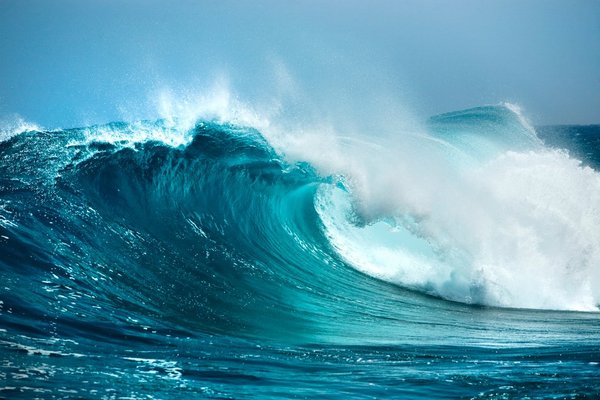 Read this article in French
Read this article in French- Share this article
- Subscribe to our newsletter
Our ocean, our future, our responsibility
“The oceans have to become a model of the common use of natural resources. Without healthy seas, the planet can’t be healthy,” said UN Secretary General António Guterres at the beginning of the United Nations Ocean Conference, held in Lisbon/Portugal in late June 2022. One example here is the latest World Trade Organization (WTO) agreement on ending harmful fishery and a binding responsibility beyond national legislation to preserve natural resources.
Nevertheless, there were doubts at the beginning of the conference, for according to Kenya’s President Uhuru Kenyatta, Sustainability Goal 14 has the smallest budget. Surangel Whippes, President of the island nation of Palau, and spokesman for the small island nations, warned that by 2050, more bits of plastic would be swimming in the oceans than fish.
The oceans cover 70 per cent of the Earth’s surface, making them the planet’s biggest biosphere. This is where 80 per cent of all life is contained. The oceans are responsible for half of the oxygen in the atmosphere, and they absorb around half of the greenhouse gas carbon dioxide and 90 per cent of the heat.
In March this year, the International Maritime Organization (IMO) launched international negotiations on binding legislation. More than 50 nations have already ratified an agreement making shipping safer and cleaner. However, there is such a wide range of causes of pollution that they are difficult to address. Often, the sources of discharge cannot be identified.
Major challenges for fisheries
WTO Director General Ngozi Okonjo-Iweala looked back satisfied at her own conference when she was in Lisbon. The agreements on fisheries above all give the small island nations and the least developed countries (LDC) opportunities for maritime growth. After 21 years of negotiations, at its 12th Conference of Ministers in mid-June, the WTO was able to record a crucial breakthrough. The international community has made a binding commitment to also persecute illegal fishery outside the national Exclusive Economic Zones (EEZ) and secures the sustainable management of fish stocks.
The WTO agreement was regarded as a blueprint for the Ocean Conference. Things are more complicated in practical terms. Shakuntala Thilsted of the World Food Programme complained that small fishers in particular did not have voice in large-scale world trade. Furthermore, the pandemic had complicated their access to credit, insurance, training and preventive healthcare.
The maritime environment organisation Fair Oceans had brought the situation of coastal fishers in Senegal to the conference. With sea-levels on the rise and the degradation of coastal areas, fishers have to sail out further and further to sea and then encounter international fishing fleets. The new network of speedways along the Atlantic coast is driving the fishers away from their traditional fishing sites.
Money has to be fairly distributed
According to Professor Achim Schlüter of Germany’s Leibniz Centre Tropical Marine Research, conflicting aims result from different definitions of the term “Blue Economy”. While to some, it stands for a sustainable maritime policy, others understand it as a prerequisite for the economic tapping of the last natural resources.
The WTO is providing around ten billion US$ for the adaptation of small fisheries. More money is coming from the World Bank. The representatives of the small island nations see gaps in international financing. For example, according to Belize’s Prime Minister John Briceño, his country is implementing marine conservation measures, but the programmes are underfinanced. Briceño calls for compensation for those countries harming the oceans most of all.
The unknown world
“We can’t protect something that we don’t know,” said Amélie de Montchalin, who heads France’s Environment Ministry. “We only have an inkling of the value which this natural resource bears, and we need a valid scientific base.” The “Group of 77”, the developing countries plus China, call for more research in the least developed countries and the small island nations.
Only small steps towards protecting the oceans have been made at the conference. Germany’s Environment Minister Steffi Lemke acknowledges the efforts made there. “The conference is sounding the alarm given the dramatic state of the seas,” Lemke says. “There is considerable pressure to take action, because our seas are acidified, polluted and overused. This public attention is needed to ensure that in forthcoming negotiations, for example on a binding Conservation Treaty for the High Seas, good solutions will be reached.”
Roland Krieg, journalist, Esens, Germany
More information:
Outcome of the conference
Visit the Conference website
Visit the Fair Oceans website
Rural 21, issue 4/2021: Tailwind for sustainable artisanal fisheries





Add a comment
Be the First to Comment